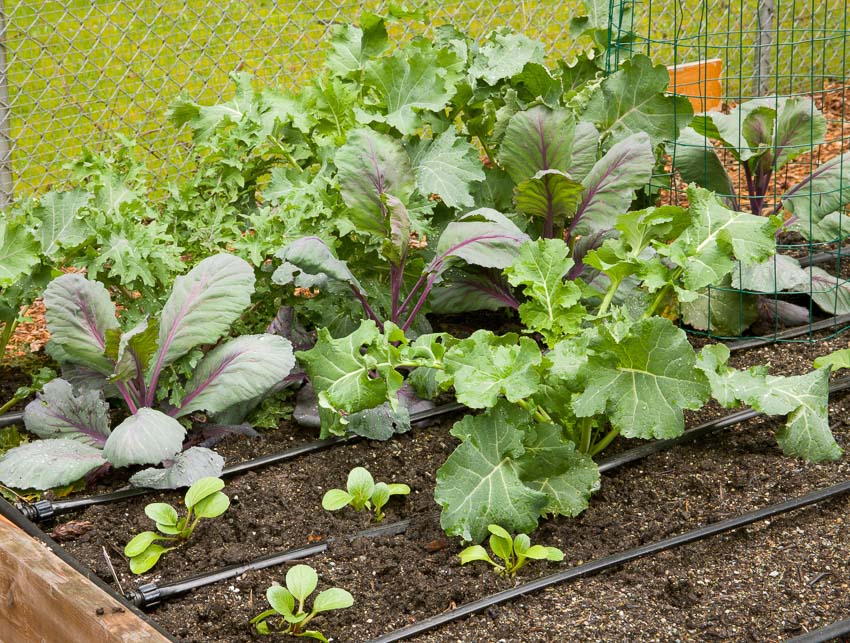Before you put your wheelbarrow away, discover how to overwinter your vegetable garden. In the Pacific Northwest, there are many ways to extend your growing season and enjoy a fruitful harvest throughout the winter months.
What Is Overwintering?
In gardening terms, overwintering is the process that you use to protect plants from harsh winter conditions. In the Pacific Northwest, low temperatures, frost, and damp weather threaten certain plants, so you need to shield them from extreme conditions.
You can use various techniques to overwinter plants in the garden. In the Pacific Northwest, which includes USDA Hardiness Zones 6 through 9 , there’s a wide range of growing conditions. As such, you have to know which plants need a little help making it through the winter.
Creating a favorable microclimate helps your plants endure through the winter so that they can continue growing when conditions improve in the spring. Overwintering also includes using temporary measures like frost blankets, row covers, or cold frames. These extend the growing season for vegetables.
Learn how to overwinter a garden in the Pacific Northwest by discovering the importance of removing plant debris, planting cover crops, adding compost and mulch, and using the right watering techniques.
Why Knowing How to Overwinter a Vegetable Garden Is Important
Discover how overwintering impacts your garden and why extending your growing season in the Pacific Northwest is so important.
Extended Growing Season
For gardeners, the ability to overwinter vegetables means year-round enjoyment and connection to their garden. Staying engaged with the natural cycles of planting, growing, and harvesting is good for your physical and mental well-being.
By extending your growing season, you can enjoy produce long after most gardeners have put their vegetable gardens to bed.
Conserving Resources
Compared to using greenhouses, which require large amounts of energy to maintain, extending your growing season with row covers and cold frames is a great way to grow more vegetables. Moreover, you can do this without a large amount of energy costs.
Many overwintering techniques naturally conserve resources. For example, mulching is a primary method used to protect plants from winter weather. But it also helps retain moisture, thereby conserving water resources.
Pest and Disease Management
Overwintering your garden includes activities like protecting herbs with mulch, wrapping the trunks of fruit trees, and using windbreaks and thermal mass to protect tender perennials from winterkill damage. These techniques lead to healthy plants, which are less susceptible to diseases and insect infestations.
Several overwintering methods can help break up pest and disease cycles. These include crop rotation, using cover crops, and cleaning up garden debris.
Learn how to get rid of pests like rabbits, deer, and voles!
The Benefits of Knowing How to Overwinter a Vegetable Garden
Are you curious about the benefits of overwintering a vegetable garden? Find out how it pays to work in your garden in the fall and winter.
Fresh Produce Year-Round
Using overwintering strategies, you can extend your growing season and have fresh produce from your garden every month of the year. Even if you live in Zone 6, you can continue to harvest frost-tolerant greens like kale and chard until November and December.
Cost Savings
Growing a garden presents many opportunities to save money on food, and you’ll enjoy better nutrition at no extra cost when you extend your growing season. Vegetables lose about 30% of their nutritive value within three days of being harvested, so eating fresh is best.
Sustainability
Homegrown food is more sustainable than commercially grown produce. When it comes from your garden, you have more control over the ecological impact your food sources have on the environment.
When to Start Overwintering a Vegetable Garden
Part of knowing how to overwinter a vegetable garden is understanding that timing is everything. This is especially the case when it comes to overwintering. Learn how to tell when it’s time to start preparing your vegetable garden for winter.
Pacific Northwest Climate Overview
In the Pacific Northwest, winters are generally wet and mild. However, there are occasional cold snaps, particularly in the inland and high-elevation regions. Summers are typically cooler than many other parts of the country, and this area is well-suited for cold-season crops.
Ideal Overwintering Months
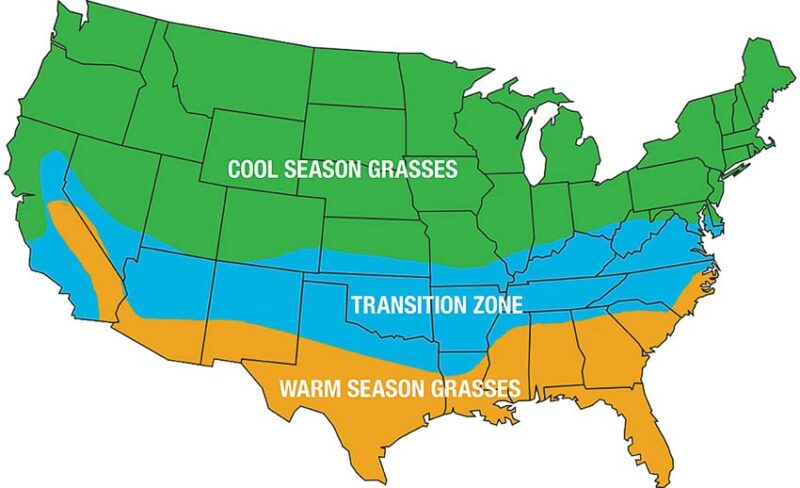
The ideal months for overwintering vegetables in the Pacific Northwest vary depending on your growing zone and regional climate differences. Generally, you can start growing a fall garden in late summer to early fall.
You can continue growing cold-hardy vegetables throughout the winter in many regions, especially along the coast in cities like Seattle and Portland. If you live in a higher elevation area, you must use row covers and cold frames to extend your growing season.
Plant-Specific Timing
Start growing cool-season vegetables like kale, broccoli, spinach, and cabbage in late July to early September. In September, you can plant rows of carrots and beets in your garden beds and direct sow chard and winter greens in cold frames. Plant garlic and cover crops in October.
Tips for How to Overwinter a Garden in the Pacific Northwest
Learn how to get your garden ready for winter with tips on preparing your garden beds to plant-specific guidance for overwintering vegetables.
Preparing Your Garden Beds
Winterizing flower beds and vegetable gardens in the fall is a great way to get a headstart on gardening in the spring. Use these tips to prepare your garden beds in the fall.
Winterizing Raised Garden Beds
Winterizing garden beds starts with cleaning up plant debris. Remove stakes, trellises, wire cages, and decorative features. Then, wipe them down and store them in the garden shed for the winter so they don’t deteriorate prematurely.
Remove weeds and smooth your garden beds with a rake. Then, add a layer of compost followed by organic mulch to protect the soil and help it retain moisture.
Garden Prep for Winter
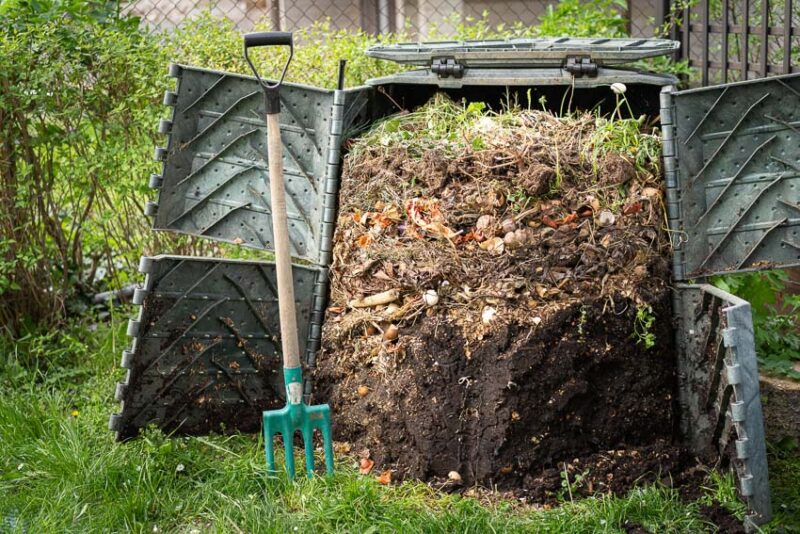
Mid to late fall is the best time to prepare your garden for winter. After the growing season, your soil may need to be replenished, so it’s an optimal time to test your soil and add amendments like bone meal, compost, and organic matter.
Plant-Specific Guidance
Follow these plant-specific tips to get the most out of your garden in the fall and winter.
Overwintering Carrots
Learning how to overwinter vegetable garden crops like carrots is easy. Root vegetables like carrots and beets can be harvested straight from the ground until spring. Simply cover them with a deep layer of straw mulch to keep the ground from freezing solid, and you can access them all winter.
Winterizing Tomato Plants
Tomato plants are tender annuals and won’t last long in freezing temperatures. Here are a few options to handle tomato plants in the fall once the temperature dips below 32°F (0°C):
- Cover them with frost blankets to extend the growing season.
- Bring potted tomatoes indoors for another couple of months.
- Harvest all ripe and unripe tomatoes and remove the plants.
Winter Harvest Vegetables

Several plants are well-suited for growing and harvesting during the winter in the Pacific Northwest. Plant your fall and winter garden in late summer to early fall, and enjoy harvesting vegetables like these long after the traditional growing season:
- Beets
- Kale
- Chard
- Kohlrabi
- Broccoli
- Cabbage
- Spinach
Experiment every year to find new cultivars and growing techniques for winter vegetables. You can also contact your local extension office and ask for assistance from master gardeners in your area.
Protective Measures
Implementing protective measures ensures that your garden remains healthy.
Covering Your Garden
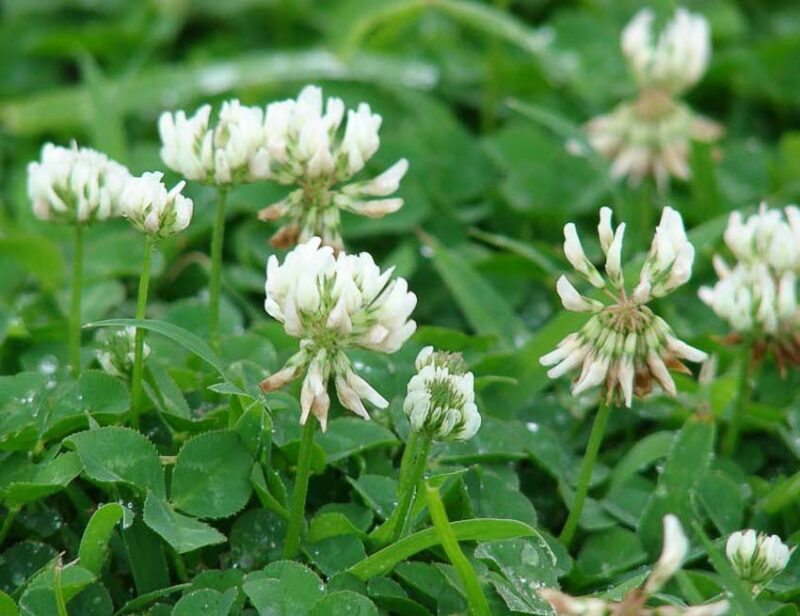
Unprotected soil leads to soil erosion and nutrient depletion. Protect your garden from winter winds, cold rains, and heavy snowfalls by covering any areas not planted with fall and winter crops.
You can cover your garden with erosion blankets, tarps, mulch, or green manure cover crops. Cover crops have numerous benefits, including improving soil structure and adding nitrogen and organic matter.
Dealing with Dead Plants
Fall cleanup starts after the first frost. Dead plants should be removed from your garden as they die so they don’t harbor pests and diseases.
Some of the plants in your garden are more cold-tolerant than others. Peppers, squash, and tomatoes are the first to die, while frost-hardy plants like cabbage, broccoli, and spinach can last several more weeks.
Garden Cleanup
Garden cleanup is important for several reasons. Bacteria and fungi cause diseases that overwinter in dead and rotting plants.
Another important part of garden cleanup is putting away tools and garden supplies. Protecting everything from plant stakes to wood-handled tools protects them from harsh winter conditions and extends their usable lifespan.
Soil and Mulch
Follow these tips for soil health and mulching strategies.
Soil Health in Winter
Healthy soil is teeming with microbial life. Covering your garden protects the soil microbes, which contribute to nutrient cycling and plant health.
Mulching Strategies
Knowing how to use mulch to overwinter your vegetable garden is also important. This includes straw, wood chips, shredded leaves, and bark. Extend the mulch out to the drip line on fruit trees, but avoid mulch volcanoes around the base of the tree, which can lead to rot and disease.
Monitoring and Maintenance
It’s important to continue to monitor your garden throughout the winter months. Perform regular inspections and tackle pest problems as they present themselves.
Regular Inspection
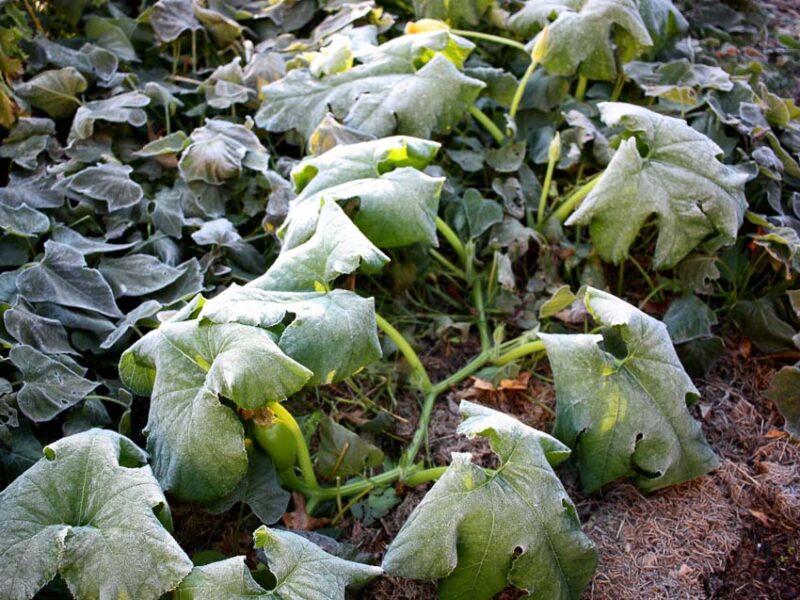
When conducting garden inspections, look for signs of disease, pests, and winter damage. Monitor soil moisture closely. If extended dry spells last more than two weeks, water your plants during the day when temperatures are above freezing.
Pest and Disease Management
With regular inspections, you’ll be able to spot pest damage quickly. If voles, rabbits, and rodents are chewing on the bark of your trees, use protective barriers right away to deter them.
Harvesting in Winter
Summer gardens are bursting with activity, but winter gardens are quieter and more subtle. Still, you’ll be able to enjoy harvesting fresh produce in the winter by following these tips for winter harvests.
Tips for Winter Harvest
Get the most out of your winter garden with these tips and tricks:
- Plant your fall garden early, usually in mid to late summer.
- Sow seeds directly into cold frames.
- Choose cold-hardy varieties of winter vegetables.
- Know which plants can handle light frosts.
Another important tip for Pacific Northwest gardeners is to avoid overwatering. There’s less evaporation in cool weather, and natural precipitation is often more than adequate.
FAQs About How to Overwinter Vegetable Gardens in the Pacific Northwest
Should I Cover My Garden in the Winter?
Bare soil should be protected in the winter because the wind, rain, and cold can damage the top layer of soil, causing nutrient depletion and soil erosion.
Choose from several options when covering your garden for the winter, including everything from tarps and erosion fabric to mulch and compost. Green manure cover crops are another excellent option.
What to Do with Vegetable Garden at End of Season?
Investing some time in the fall to prepare your garden for winter will ensure it’s ready to go in the spring. Putting your garden to bed for the winter includes cleaning up plant debris, weeding, mulching, and planting cover crops.
If you plan ahead and plant a winter vegetable garden during the summer, then at the end of the traditional growing season, you can also enjoy tending to your cold-hardy vegetables.
How Do I Overwinter Raised Vegetable Garden Beds?
A tidy winter garden isn’t just aesthetically pleasing. It also makes it easier to start gardening in the spring and protects your plants and soil during the winter.
To prepare raised beds for winter, remove all stakes, trellises, and wire cages. Then, add a couple of inches of compost and some straw mulch to winterize your vegetable garden bed.
Learn about Soil Preparation for Your Raised Garden Bed!
Should I Leave Dead Plants in the Garden?
Dead and rotting plants can harbor various diseases and pests, making it easy for insects and fungi to resume their lifecycles in the spring. It’s much better to clean up plant debris in the fall and put it in your compost. By spring, you’ll have plenty of decomposed organic matter to put back into your soil.
When can I De-Winterize My Garden?
The corollary to knowing when to put your garden to bed for the winter is understanding when to wake it up in the spring. Wait until soil temperatures warm up to de-winterize your garden. Depending on where you live, this may be as early as March or April, but in some parts of the PNW, it won’t be until May.

